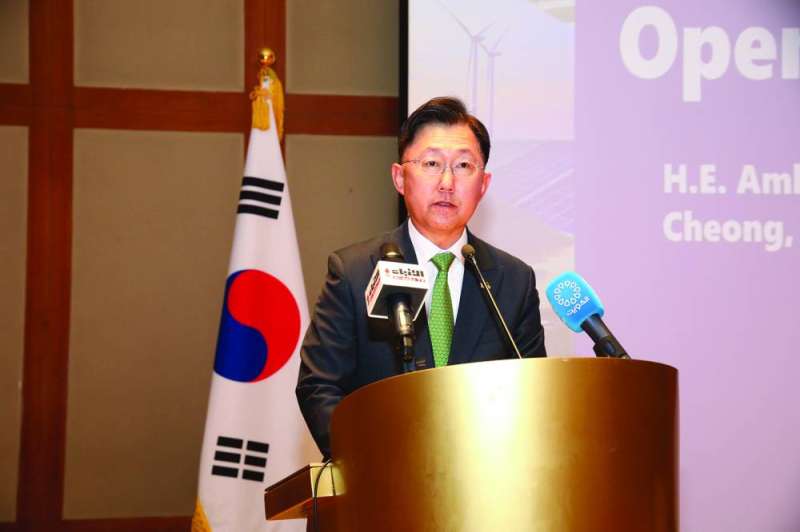Engineer Ahmed Al-Dosari, the Director of the Renewable Energy Department at the Ministry of Electricity and Water, has affirmed that Kuwait is making significant strides in the realm of renewable energy. The country has achieved the remarkable feat of producing 15 percent of its electricity from the Al-Shaqaya project, surpassing the 2030 target for local consumption, as reported by Al-Rai daily.
Speaking at the Sixth Smart Cities Forum organized by the Korean Embassy, Al-Dosari explained that the Al-Shaqaya project’s first phase, overseen by the Kuwait Institute for Scientific Research, generates 70 megawatts. The project employs three distinct technologies — wind energy, solar energy, and electro-photovoltaic energy — and is progressing through various stages, with a planned production capacity of 4,500 megawatts.
When it comes to financing the Al-Shaqaya project, Al-Dosari clarified that it involves independent suppliers and investors who are responsible for station construction. The Ministry of Electricity would subsequently procure energy from these investors. Emphasizing the substantial investment in renewable energy, he stated that each of the four planned stations would incur significant costs in the billions.
Al-Dosari also disclosed the completion of a study on the decision to purchase renewable energy from various sources, including citizens and different consumer sectors. Plans are underway to train and qualify local engineers proficient in the field. This initiative reflects Kuwait’s commitment to nurturing local talent and expertise in renewable energy.
In addition to domestic efforts, Kuwait actively cooperates with Gulf countries in the renewable energy sector. The Special Committee for Renewable Energy holds semi-annual meetings, where Kuwaiti engineers collaborate with their Gulf counterparts to establish a regulatory framework. This collaboration ensures a unified approach to renewable energy development in the region.
Furthermore, Kuwait has forged an agreement with China to enhance cooperation in renewable energy. Al-Dosari mentioned the ongoing implementation of directives from His Highness the Crown Prince following a recent visit to China. With strong encouragement from the political leadership, projects are progressing, paving the way for a fruitful partnership between Kuwait and China in the field of renewable energy.
Ambassador Chung Byung-ha of the Republic of Korea to Kuwait expressed optimism about the forum laying the groundwork for enhanced cooperation between Korea and Kuwait in energy transformation. He urged both countries to transition from simple energy trade to comprehensive energy transformation. This call for collaboration and innovation highlights the importance of international cooperation in achieving sustainable energy goals.
Kuwait’s commitment to renewable energy is commendable. By surpassing its targets and investing in renewable projects, the country is taking significant steps towards a greener future. The Al-Shaqaya project, with its diverse range of technologies, is a testament to Kuwait’s dedication to harnessing the power of wind, solar, and electro-photovoltaic energy.
As Kuwait continues to make progress in renewable energy, it is crucial to train and empower local engineers to lead the way in this field. The collaboration with Gulf countries and the agreement with China further strengthen Kuwait’s position in the global renewable energy landscape.
The forum organized by the Korean Embassy serves as a platform for countries to share their experiences and explore opportunities for cooperation. By transitioning from simple energy trade to comprehensive energy transformation, Kuwait and Korea can work together towards a sustainable and greener future.
With its steady advancement in renewable energy, Kuwait is setting an example for other countries in the region and beyond. By embracing clean and sustainable energy sources, Kuwait is not only reducing its carbon footprint but also ensuring a more secure and resilient energy future for its citizens.







